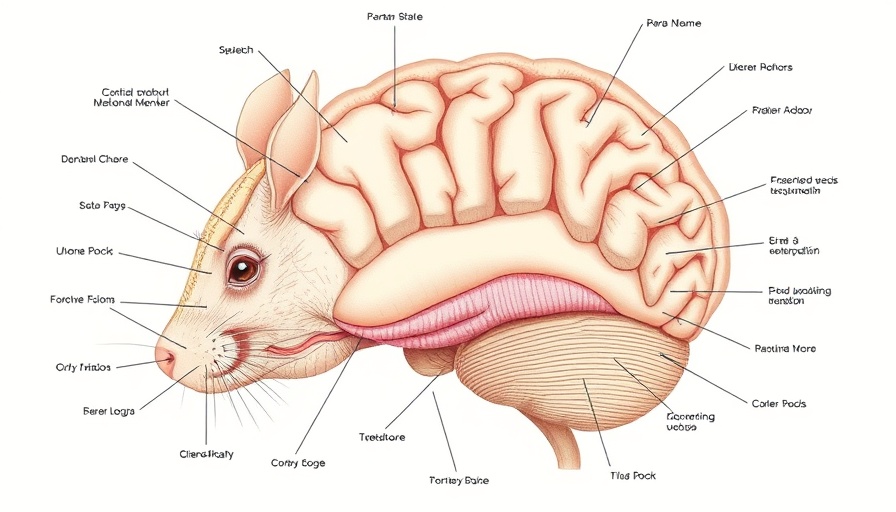
Rethinking Treatment: Targeting the Brain for Type 2 Diabetes
Groundbreaking research from the University of Washington School of Medicine suggests a novel approach to treating type 2 diabetes by focusing on the brain instead of traditional methods that target obesity and insulin resistance. This research, published in the Journal of Clinical Investigation, signifies a new era in understanding diabetes at a neurological level.
Understanding AgRP Neurons: The New Players in Diabetes
The study highlights the role of AgRP (Agouti-related peptide) neurons located in the hypothalamus of the brain. Dr. Michael Schwartz, the lead researcher, notes that hyperactivity in these neurons is prevalent among diabetic mice, leading to hyperglycemia. Unlike conventional wisdom, which solely linked diabetes to genetic and lifestyle factors, this study opens up the possibility that our brain's wiring might hold the keys to diabetes management.
Challenging Conventional Wisdom on Diabetes Management
Traditionally, type 2 diabetes has been viewed primarily as a consequence of obesity, inactive lifestyles, and dietary choices, leading to insulin resistance or insufficient insulin production. The research challenges this notion, showing that AgRP neurons play a crucial role in regulating blood sugar levels, separate from their influence on body weight. This finding suggests that targeting these neurons could lead to effective diabetes treatments that don’t necessarily involve weight loss.
Methodology: Innovative Techniques Yield Surprising Results
Utilizing viral genetics, researchers inhibited the communication of AgRP neurons with other neurons by causing them to express tetanus toxin. Astonishingly, this intervention normalized high blood sugar levels in diabetic mice for several months without affecting their body weight or food consumption. These results highlight the significance of brain function in the regulation of diabetes-related blood sugar.
The Future of Diabetes Treatment: Targeting Brain Functions
As this research progresses, it sets the stage for developing new therapeutic strategies aimed at calming hyperactive AgRP neurons. Dr. Schwartz emphasizes the need for further studies to understand how these neurons become hyperactive and how they can be effectively regulated to aid in diabetes remission.
Broader Implications: What This Means for Health and Wellness
The implications of this research extend beyond diabetes alone; it invites a broader discussion on health and wellness. By understanding the role of the brain in diabetes, we may also gain insights into other metabolic disorders, potentially leading to innovative treatments that could benefit those looking for natural ways to pursue their overall health. This may resonate with individuals interested in health and wellness, as practitioners often advocate for holistic approaches focusing on both the physical and mental components of health.
Embracing a Holistic Perspective on Diabetes
With this new understanding, there's potential for a paradigm shift in how we approach diabetes treatment. Blending neuroscientific insights with lifestyle medicine, such as diet, exercise, and mental health strategies, might illuminate a path toward not just managing diabetes but possibly offering pathways to natural recovery.
Conclusion: Toward a New Paradigm in Diabetes Care
In light of these findings, it’s important for individuals and healthcare practitioners alike to consider alternative medicine and complementary therapies that may harness the mind-body connection effectively. Pursuing knowledge about health and wellness definitions can empower patients to take informed steps towards holistic diabetes management.
For those navigating the complexities of type 2 diabetes, keeping an eye on ongoing research and emerging therapies will be essential. Understanding that the brain holds potential keys to better management opens avenues for both conventional and alternative medicine pathways. Explore how you can integrate these insights into your health journey for improved vitality and wellness.
 Add Row
Add Row  Add
Add 




 Add Row
Add Row  Add
Add 


Write A Comment